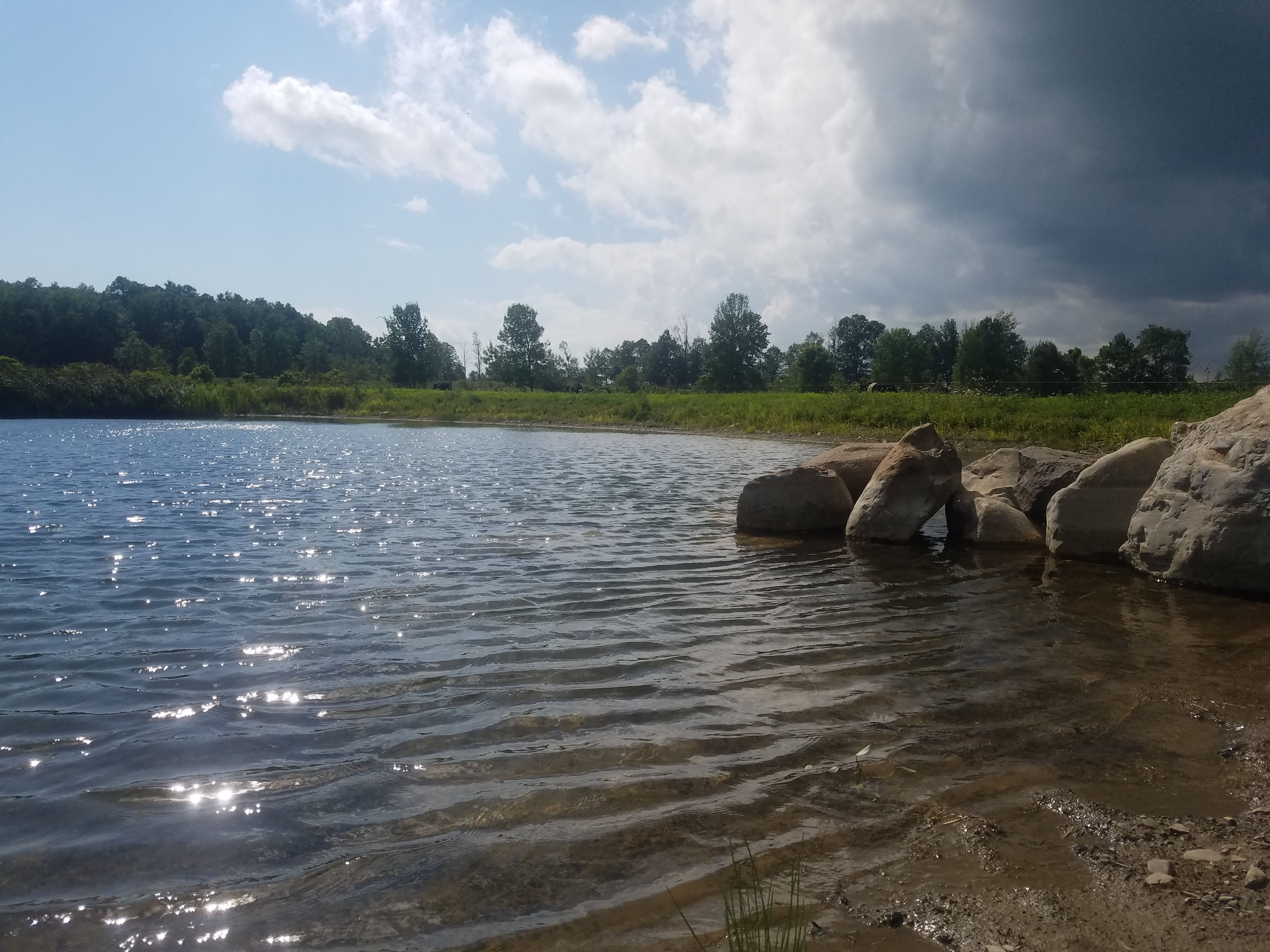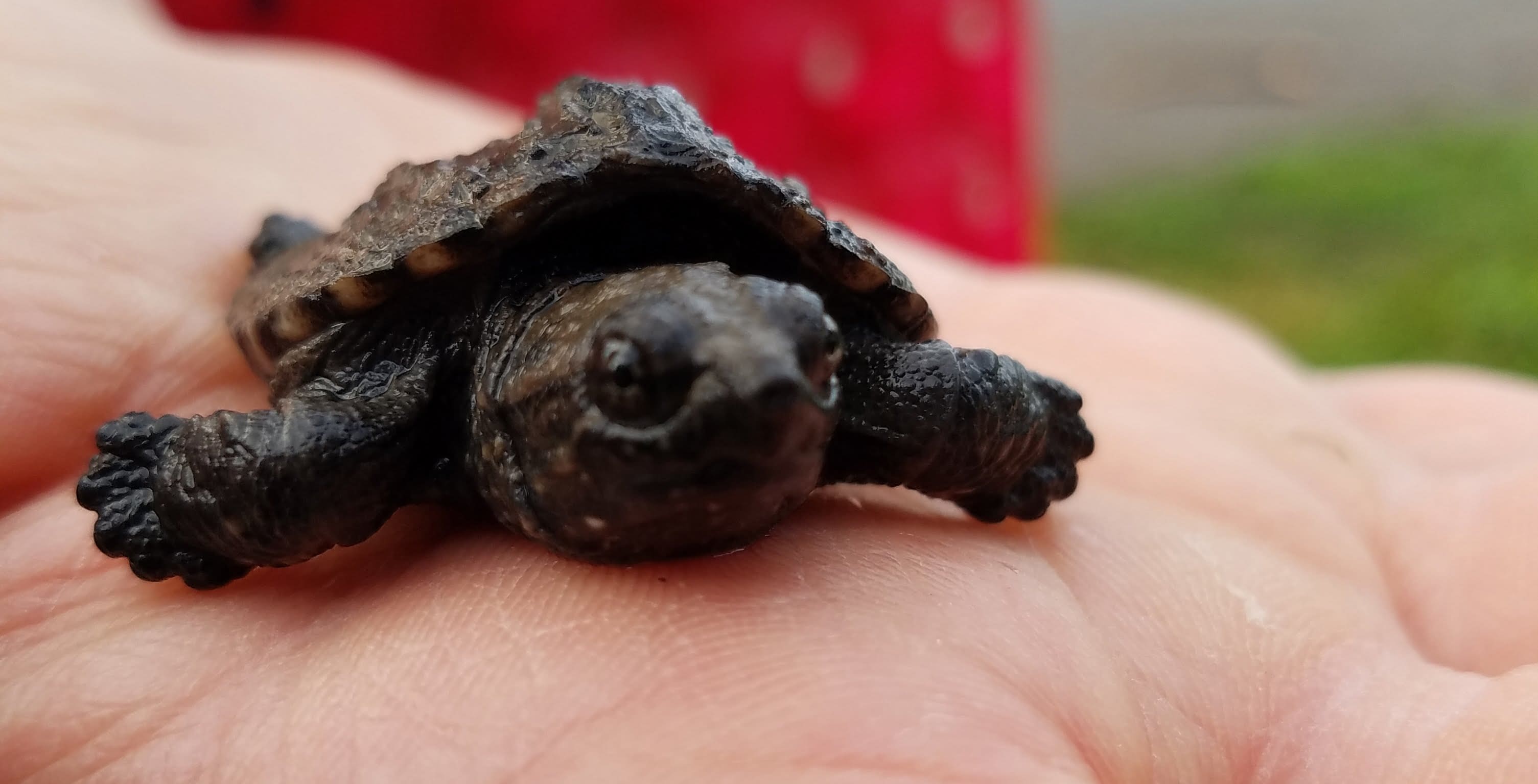Once when selling at a farmers’ market, a customer told me she felt particularly conflicted about purchasing beef because of the water it wastes. Indeed, depending on the source of your facts, you can find shocking statistics stating that beef wastes between 500 and 2500 gallons per pound of meat, so it isn’t surprising that she was so troubled. This horrific waste is a favorite argument cited by those who’d wish to convince others to stop eating beef.
I’d like to present my reasons for positing that Wrong Direction Farm beef doesn’t waste water. I’ll only address my specific context. I can’t speak for other farms, or for the circumstances in other climates. I’m no expert in water usage for growing grain, nuts, fruit, or vegetables, so I can’t authoritatively point to other agricultural practices for comparison. I’ll just stick with what I know well, my farm.
As an establishing point: what is wasted water and why does it matter? Water waste results from disruption of the water cycle. Water can be wasted by removing it from a location and not replacing it (such as drawing water from a well and then flushing it into a waterway rather than letting it infiltrate back through the soil into the well). Water can also be wasted by polluting it, rendering future uses of it harmful. Waste has turned critical in places where municipal water supplies and privates wells are running dry as subterranean water levels drop. In some locations this results in dry wells as the cost to dig deeper becomes prohibitive. Elsewhere, saltwater is intruding into depleted aquifers and ruining the fresh water supply. Declining water tables even cause subsidence at the surface as underground pore spaces collapse. (Side note: for a particularly perverse twist, follow the story of how cheap solar power is helping irrigate bumper crops of opium in Afghanistan, while rapidly destroying their water supply.) Undeniably, water waste is a serious issue for communities throughout the world.

Every drop of water used by our farm is directly harvested as rainwater. Under the house we have an old cistern to collect runoff from the roof of the house and the shed behind it. In the back of the farm we have a pond to collect rainwater at the bottom of a long sloping field. All of our fields, both the pastures and the fields cut for hay are watered by rainfall, with no irrigation from wells or aquifers. So at the source, our water use is not depleting any groundwater reserves.
Naturally, soon after the cattle drink they urinate it back out. Because the herd is never concentrated in numbers that exceed the carrying capacity of the land, urine is distributed in volumes the soil can easily absorb. Soil bacteria are able to synthesize it into nitrogen-rich fertilizer. We constantly move the cattle throughout the farm, preventing any one one area from becoming supersaturated, thus preventing wastage from water becoming polluted.
And about the water in the pond… As it sits there, it isn’t a passive rainwater storage tank. It is active. The pond is full of fish, snails, frogs, and turtles. Bees fly over from the hives next door to drink. Swallows and killdeer visit each day. Herons hunt in the reeds. A pair of geese visits each spring to lay eggs. Migrating flocks of ducks stop for a rest. Deer and coyotes drop by for a drink. And we swim in it on hot summer evenings. By digging this pond, we’ve been able to create new wildlife habitat and to diversify the local ecosystem.

Are there beef products that squander thousands of gallons per pound of meat? That absolute worst case scenario probably exists somewhere. But that certainly isn’t the situation here. The most you can say is that we temporarily divert the water through our cattle.
You can take a bite out of a Wrong Direction Farm grass fed steak or burger or brisket and enjoy it for the taste and satisfaction you find in eating it. But if you also need some ecological reassurance about the wider effects of the meal, then I can provide that too.
Just be sure not to waste water when you are washing the dishes afterwards.

2 thoughts on “WDF Beef and Water”
Love your well thought out answers!
Thanks, Maryerin!